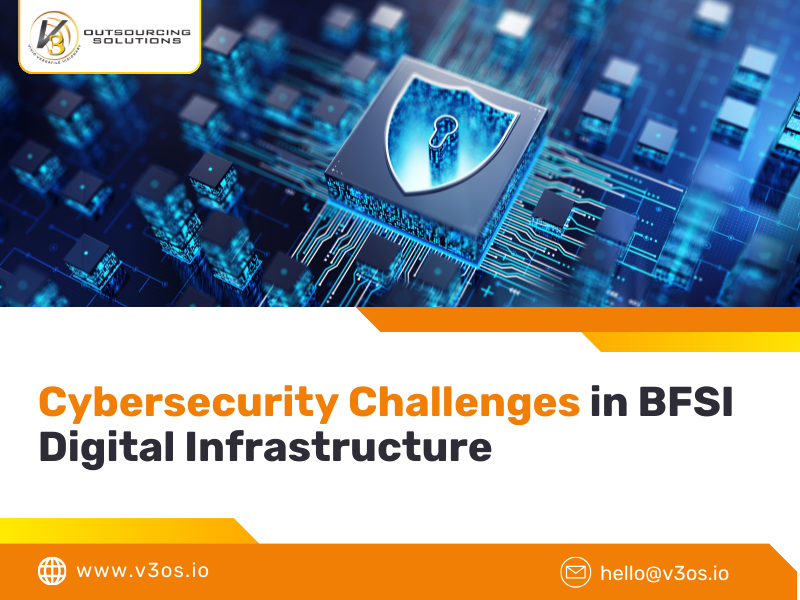
Financial institutions are main targets for cyberattacks. This is a major concern given that a cyberattack generally occurs every 40 seconds! As per the reports, there were 7.9 million DDoS attacks, averaging 45,000 attacks every single day in the first half of 2025. Meanwhile, the average global cost of a data breach climbed to USD 4.45 million, representing a 15% increase over 3 years. Such attacks are becoming more common & sophisticated; that means businesses need to rethink their IT security strategies, including leveraging IT infrastructure as a service to continue.
Cybersecurity has become more serious than ever for financial institutions, since there are attacks from state-sponsored groups to individual opportunists using malware that is readily available. Cybersecurity measures need to be given priority since just one vulnerable endpoint could result in a successful breach by the hackers into their data.
Organisations can guard themselves against these threats through cloud-first tools that embrace a ‘bottom-up’ model of security based on identities, a zero-trust approach, etc., for strong protection against cyberattacks. Such technologies guard data and devices by implementing real-time decentralised security to find out & respond to threats prior to them turning out to be significant issues. What is worth mentioning is that by incorporating IT infrastructure as a service, organisations can further beef up their security status by leveraging the provider’s high-end advanced security measures and expertise in managing IT infrastructure.
Cyber sharks have become familiar with BFSI policies and procedures, making them major targets for high-level cyberattacks. Hackers tend to target financial services firms for data portfolios. They make use of the network vulnerabilities to usurp cash & information, emphasising the need for a complete cybersecurity strategy. Most importantly, the incentive behind the attack is a monetary value. Still, in other circumstances, it may be a disruption where hostile countries get involved in digital espionage campaigns to gain political advantage over rivals.
Apart from the above-mentioned threats, phishing remains the most prevalent cybercrime, with around 3.4 billion emails sent daily. Beyond outsiders, internal employees contribute to phishing attacks by clicking on spam emails, highlighting the critical need for healthy IT network security control and rigorous employee training. Organisations minimise the risks of falling prey to phishing attacks & other popular attack vectors used by hackers to infiltrate IT systems by incorporating effective cybersecurity measures.
In this digital sphere, the digital infrastructure is liable for more susceptible devices that consequently feed cybercriminals’ attack scope, leading to the procurement of proactive cybersecurity to minimise risks.
for companies that wish to handle personal data with care, ISO certification adheres to their commitment to ensuring data security. We are certified by the British Standards Institution (BSI) for ISO 9001 (Quality Management), ISO 27001 (Information Security) & ISO 27701 (Privacy Information). We completed our SOC 2 and PCI DSS compliance audits in 2024. By embracing such certifications, companies tend to streamline risks and safeguard sensitive information against threats. Embracing such certifications, companies can demonstrate their commitment to quality, suiting the rising demands in the market. No matter what size the business is, certification offers a good deal of benefits, ensuring a long-standing relationship.